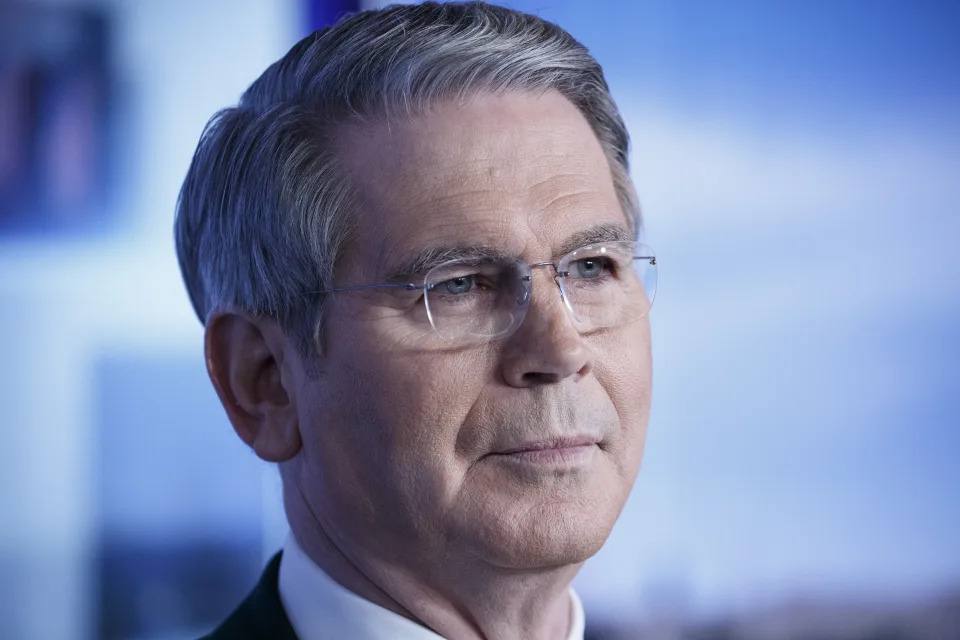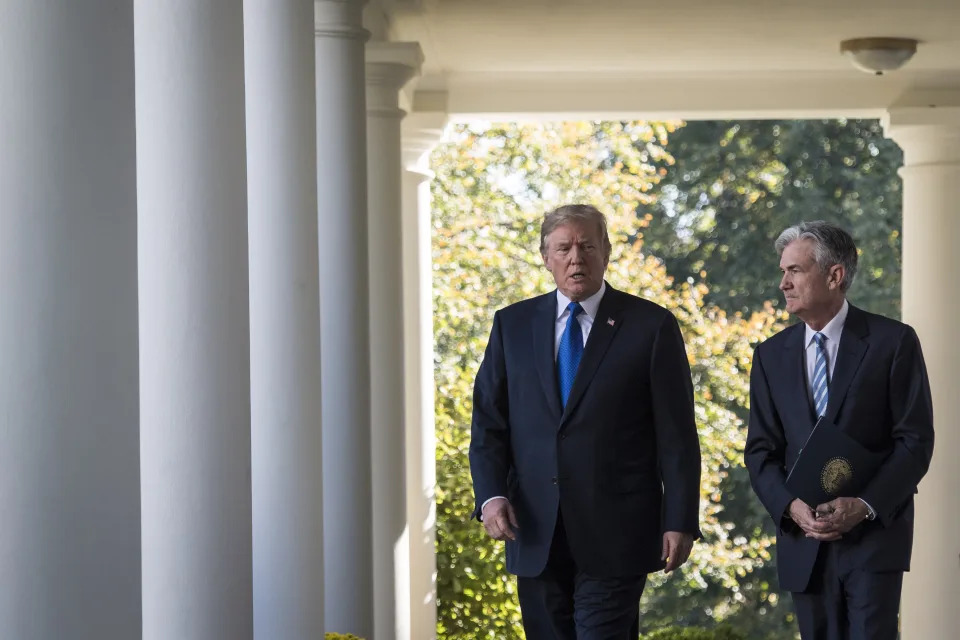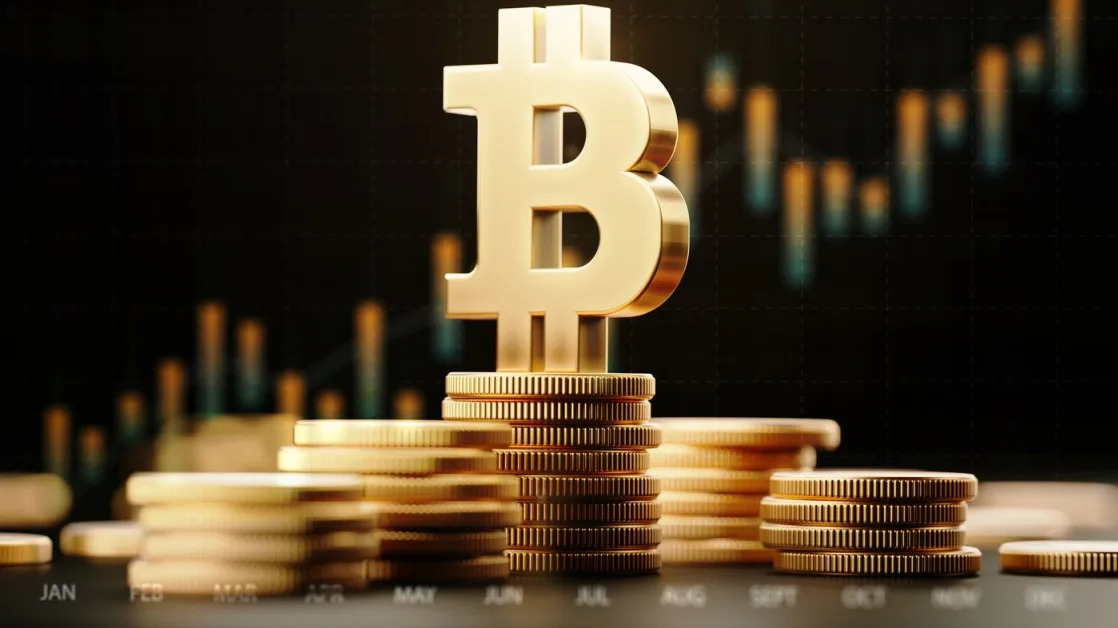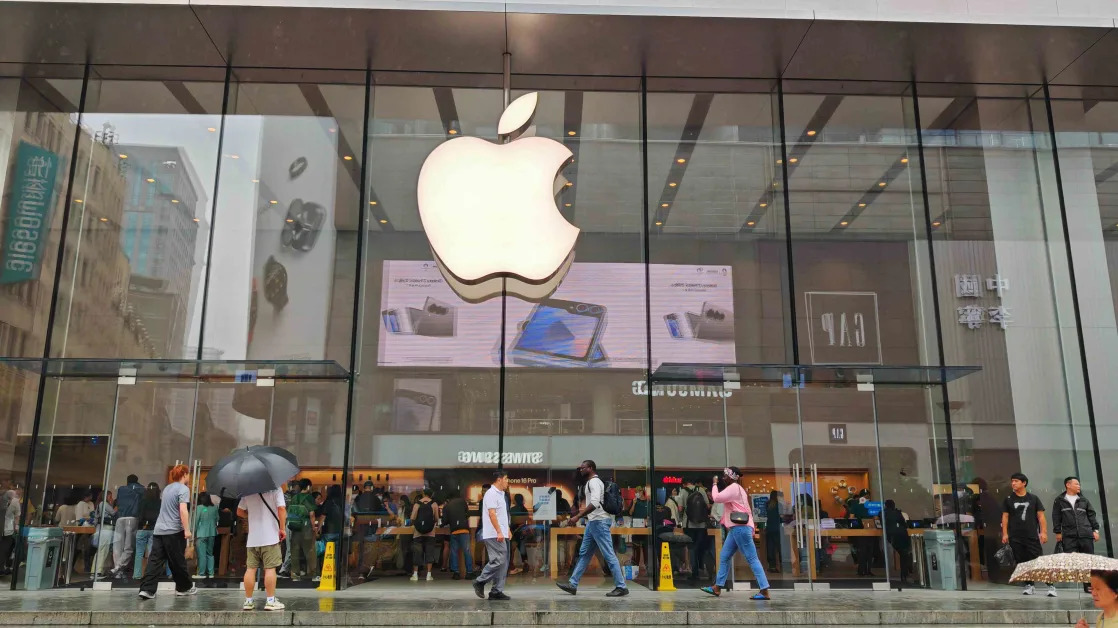Treasury Secretary Scott Bessent said Donald Trump is not asking the Federal Reserve to lower its short-term interest rates, but what he and the president do want is to bring down longer-term borrowing costs via 10-year Treasury yields ( ^TNX ).
"He and I are focused on the 10-year Treasury," Bessent said in an interview with Fox Business's Larry Kudlow, who was director of the National Economic Council during Trump's first term.
But Trump, he added, is "not calling for the Fed to lower rates."
While the Fed sets short-term borrowing rates that can have a domino effect and influence longer-term rates, there are other factors that buffet 10-year government bond yields — including the outlook for economic growth, inflation, the supply of Treasurys, and more.
The comments from Trump's new Treasury secretary marked the second time in a week that the White House has relieved some pressure on the Fed, which paused rates last month following three consecutive cuts as policymakers weigh the path of inflation and the effect of new economic policies from the Trump administration.
Read more: Fed rate decision: How it affects your bank accounts, loans, credit cards, and investments

In fact, Trump himself said last Sunday that the central bank was right to keep interest rates unchanged at its last policy meeting on Jan. 29.
"I'm not surprised," he told reporters Sunday night. "I think holding the rates at this point was the right thing to do."
The president's comments about Fed monetary policy sounded like a reversal of sorts after Trump in late January said he would "demand" lower rates and that he thought the Fed would listen to him. He also said then that he expected to talk directly with Fed Chair Jerome Powell "at the right time."
Trump added in a Jan. 29 post on his social media platform that Powell and the central bank "failed to stop the problem they created" on inflation, without mentioning rates.
When Bessent discussed the Fed on Wednesday during his Fox interview, he made it clear he would only talk about what the Fed has already done — and not what he thinks the central bank should do from now on.

For example, he noted that when the Fed did a jumbo rate cut last September of 50 basis points, the yield on the 10-year Treasury went up.
Despite the Fed’s rate-cut campaign in late 2024, longer-term interest rates in the US increased sharply, which has meant higher rates on mortgages and other borrowings. That was due in part to investor expectations of higher inflation going forward.
Some economists are concerned that Trump's policies, including tariffs, could act as another source of upward pressure on prices.
Bessent said Wednesday that tariffs are a "means to an end" to bring manufacturing back to the US and reshore economic security.
"In theory, tariffs would be a shrinking ice cube. That you would tariff a country, and then as the production comes back to the US, the income tax, the corporate revenues, and the pay income tax goes up, and the tariff income would go down."
Read more: The latest news and updates as Trump's tariffs take effect
In turn, "the current account deficit goes down, our trade deficit goes down," he added.
The president, he noted, believes if the administration rolls back regulations, makes the 2017 Trump tax cuts permanent, and gets energy prices down, then rates "will take care of themselves."
Bessent repeated his economic plan dubbed "3-3-3" — which aims to get the deficit down to 3% of GDP from above 6% by cutting regulation, sustaining growth of 3%, and boosting oil production by 3 million barrels a day.
And he offered some assurances about about Elon Musk and DOGE’s recent access to the Treasury Department’s critical payments systems.
"Our payment system is not being touched," Bessent said. "There's a study being done. Can we have more accountability, more accuracy, more traceability that the money is going where it is?"





